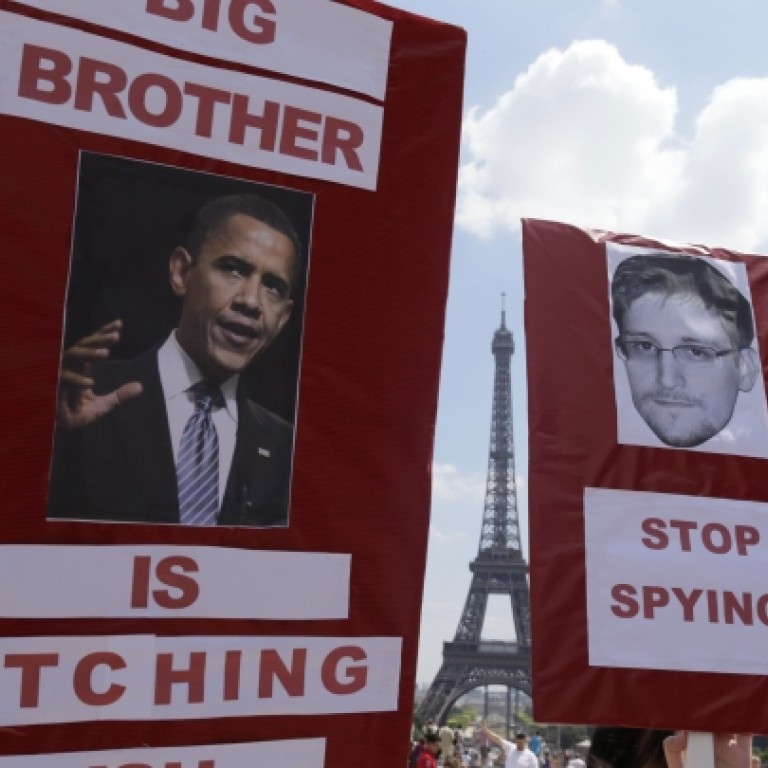
World needs a new set of internet protocols, post Snowden affair
Yun Tang says rules are needed to govern conduct by governments and individuals, post Snowden
The Edward Snowden saga has disturbed the US and caused repercussions around the world. Regardless of the ultimate fate of this unconventional whistle-blower-cum-reckless-rebel, Snowden has already carved his mark in history, given that his actions have a far-reaching impact on people's lives.
Americans have been reeling as details of government monitoring and eavesdropping surfaced. In the perceived land of democracy and freedom, people are under Orwellian surveillance. The exposure has pitted Americans against Americans over whether Snowden is a hero or traitor.
Some see him as a Robin Hood championing civil liberty and constitutional rights; others believe he is an eccentric seeking gratification while endangering national security. The US government has charged him with espionage.
Meanwhile, former US president Jimmy Carter said: "I think the [government] invasion of human rights and American privacy has gone too far." And more than 120,000 citizens have signed an appeal, on the White House "We the People" petition site, for the administration to pardon Snowden.
Snowden has triggered the deepest trust crisis for the US government since Watergate. But the questions he has raised are age-old: to what extent should citizens swap their privacy for safety, and how can they curb government overreach?
The US is the birthplace of modern science and technology giants that created the internet communication devices we use today. But the information divulged by Snowden attests again to the conclusion of American historian Will Durant that "all technological advances" are just "new means of achieving old ends".
However, at the same time, Snowden's revelations marked the ascendency of the internet as the fifth branch of power, after the media and the three branches of government. For the first time in history, "an ordinary guy", as Snowden defines himself, can influence government behaviour or destroy its reputation. In the time of the internet, in spite of the fact that the ruling leviathan possesses the invisible and omnipresent worldwide web, it is vulnerable to defiant individuals.
Snowden also leaked US cybersurveillance programmes aiming at overseas targets, dealing a heavy blow to America's international image. The recently unveiled documents on US cyberspying on the European Union have alienated Washington from its close allies.
Snowden's escape from US authorities was questioned even among his sympathisers, prompting many Americans to call his actions "treason" and to suspect his motives. As he fled, the fugitive brought out diplomatic tussles between the US and other countries.
The American public was astonished and infuriated at Snowden's flight from Hong Kong. In fact, the former British colony has close legal co-operation with the US, even after its handover to China. This is exemplified through the legendary arrest in 2000 and subsequent extradition to the US of Cheng Chui-ping, the smuggling ringleader in the Golden Venture tragedy.
But Snowden is different. With Hongkongers rallying for his protection against extradition, US officials apparently underestimated the difficulties in dealing with the Hong Kong establishment, to which Snowden exposed American hacking. Currently, it is unclear how long the rare finger-pointing between Washington and Hong Kong will go on over Snowden, but events will be worth watching over the next few months.
The fallout from Snowden in relation to US-China ties should be limited.
Since the beginning of the saga, both sides have used measured words when referring to the other party. This is obviously due to the mutual understanding and trust reached by the two state leaders, Barack Obama and Xi Jinping , at the Sunnylands talks last month.
This week, the US-China Strategic and Economic Dialogue will be held in Washington. US Treasury Secretary Jack Lew and Secretary of State John Kerry are set to host their Chinese counterparts in discussing a wide array of issues, including cybersecurity.
Something good can come out of even a disaster. In European history, treaties were signed to settle wars. The Titanic calamity brought about international maritime co-operation on passenger liners.
Now the time is ripe for the world to consider an international treaty with binding powers on internet security and behaviour. This is perhaps the only sweet fruit the world could harvest from the Snowden saga. The US and China, the world's two biggest economies, ought to play a leading role to achieve this goal.
Since ancient times, people have shown their ability to adapt to and tame harsh conditions. Today, they need to tame a new, fierce and intimidating monster: misconduct on the internet by both governments and individuals.

